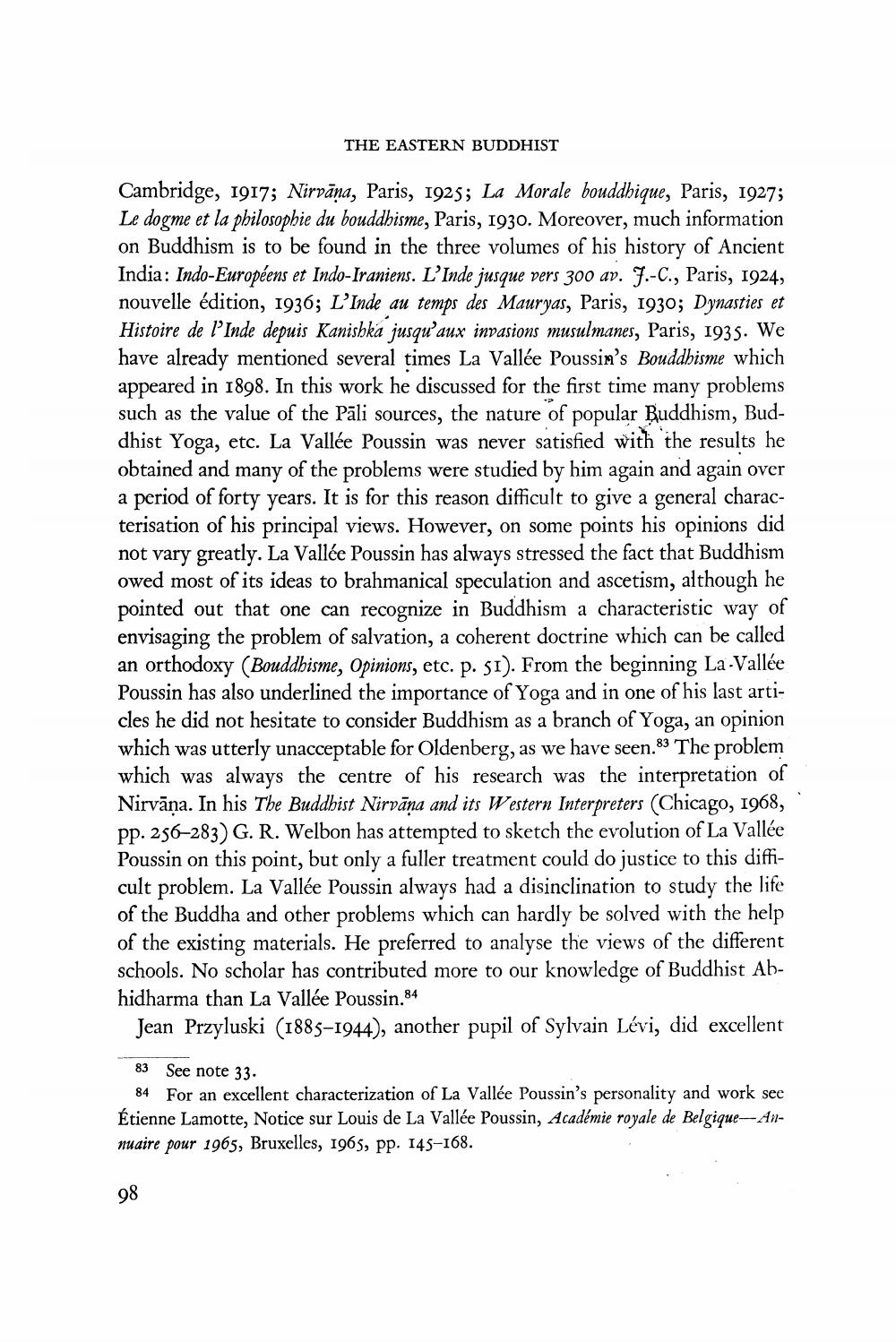________________
Cambridge, 1917; Nirvana, Paris, 1925; La Morale bouddhique, Paris, 1927; Le dogme et la philosophie du bouddhisme, Paris, 1930. Moreover, much information on Buddhism is to be found in the three volumes of his history of Ancient India: Indo-Européens et Indo-Iraniens. L'Inde jusque vers 300 av. J.-C., Paris, 1924, nouvelle édition, 1936; L'Inde au temps des Mauryas, Paris, 1930; Dynasties et Histoire de l'Inde depuis Kanishka jusqu'aux invasions musulmanes, Paris, 1935. We have already mentioned several times La Vallée Poussin's Bouddhisme which appeared in 1898. In this work he discussed for the first time many problems such as the value of the Pāli sources, the nature of popular Buddhism, Buddhist Yoga, etc. La Vallée Poussin was never satisfied with the results he obtained and many of the problems were studied by him again and again over a period of forty years. It is for this reason difficult to give a general characterisation of his principal views. However, on some points his opinions did not vary greatly. La Vallée Poussin has always stressed the fact that Buddhism owed most of its ideas to brahmanical speculation and ascetism, although he pointed out that one can recognize in Buddhism a characteristic way of envisaging the problem of salvation, a coherent doctrine which can be called an orthodoxy (Bouddhisme, Opinions, etc. p. 51). From the beginning La-Vallée Poussin has also underlined the importance of Yoga and in one of his last articles he did not hesitate to consider Buddhism as a branch of Yoga, an opinion which was utterly unacceptable for Oldenberg, as we have seen.83 The problem which was always the centre of his research was the interpretation of Nirvana. In his The Buddhist Nirvana and its Western Interpreters (Chicago, 1968, pp. 256-283) G. R. Welbon has attempted to sketch the evolution of La Vallée Poussin on this point, but only a fuller treatment could do justice to this difficult problem. La Vallée Poussin always had a disinclination to study the life of the Buddha and other problems which can hardly be solved with the help of the existing materials. He preferred to analyse the views of the different schools. No scholar has contributed more to our knowledge of Buddhist Abhidharma than La Vallée Poussin.84
Jean Przyluski (1885-1944), another pupil of Sylvain Lévi, did excellent
THE EASTERN BUDDHIST
83
See note 33.
84 For an excellent characterization of La Vallée Poussin's personality and work see Étienne Lamotte, Notice sur Louis de La Vallée Poussin, Académie royale de Belgique—Annuaire pour 1965, Bruxelles, 1965, pp. 145-168.
98




